MUKURUKURU MEDIA
Lake St Lucia fishers – ‘We just want to fish. Why are they killing us?’
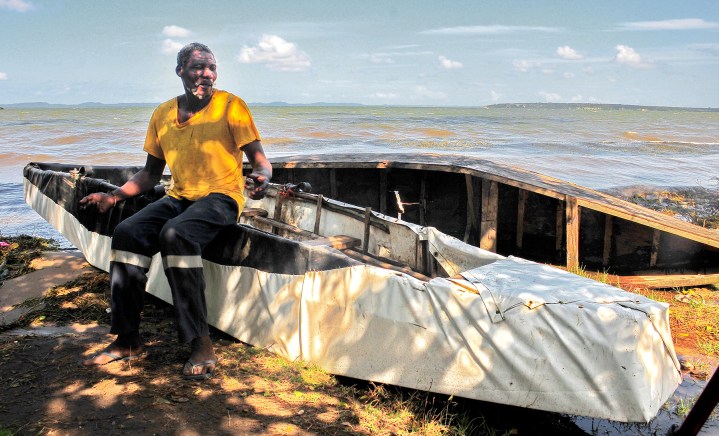
Artisanal fishers on the shores of Lake St Lucia say they are living in fear and their livelihoods have been destroyed after two members of the community were killed, allegedly by iSimangaliso Wetland Park rangers.
Lawyers representing a community of artisanal fishers in northern KwaZulu-Natal have enlisted the services of a private investigator in a bid to solve the case of a fisherman who was shot and killed, allegedly by rangers from the iSimangaliso Wetland Park.
Celimpilo Mdluli (30), a resident of KwaNibela, which lies along Lake St Lucia, was shot and killed while fishing on the night of 16 September 2020. No arrests have been made in connection with the case, although iSimangaliso has acknowledged he was shot by their rangers.
Wilmien Wicomb, an advocate with the Legal Resources Centre, which represents about 60 fishers in the area, said they had enlisted the services of a private investigator to “try and get the case properly investigated and help the police with the case”.
Wicomb said a private pathologist had conducted an autopsy on Mdluli’s body and found three gunshot wounds from a high-calibre firearm.
“This is clearly a case of rangers moving around with heavy-calibre weapons. Solving this case would help bring this to an end,” she said.
Wicomb said they were still waiting to hear from the SA Police Service (SAPS) whether the police would work with the private investigator. She said there was deep concern about the lack of progress in the investigation, adding that the police appeared to be facing challenges with regard to resources.
The SAPS did not respond to requests for comment on whether they would work with the private investigator, on allegations of a cover-up by police in collusion with rangers and why nobody had been arrested.
The body of Thulani Mdluli, also a fisherman and Celimpilo’s brother, has never been found after he too, was shot and killed, allegedly by rangers attached to the iSimangaliso Wetland Park in November 2021.
Two witnesses who were with Thulani Mdluli on the night he was killed told the family that he was shot by rangers while they were fishing in the lake.
“We suspect they [the rangers] buried him somewhere in the bush or threw the body in the lake, where there are lots of crocodiles,” said Bonga Mdluli, Thulani and Celimpilo’s older brother.
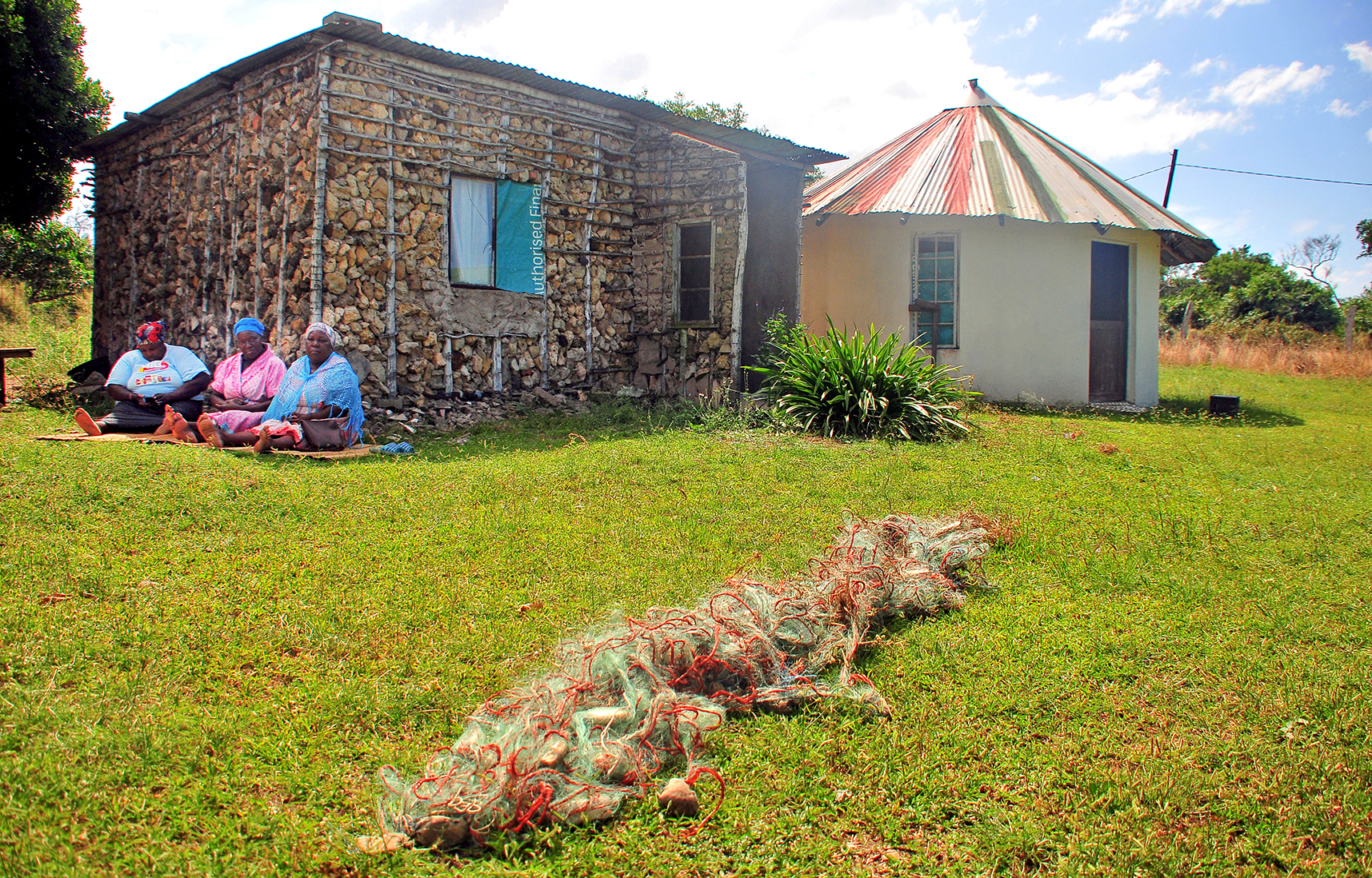
The Mdluli family in KwaNibela near Hluhluwe, KwaZulu-Natal, are struggling to come to terms with the disappearance of their son Thulani. His body has never been found, which has made it impossible for the family to conduct traditional bereavement rites. (Photo: Lucas Ledwaba / Mukurukuru Media)
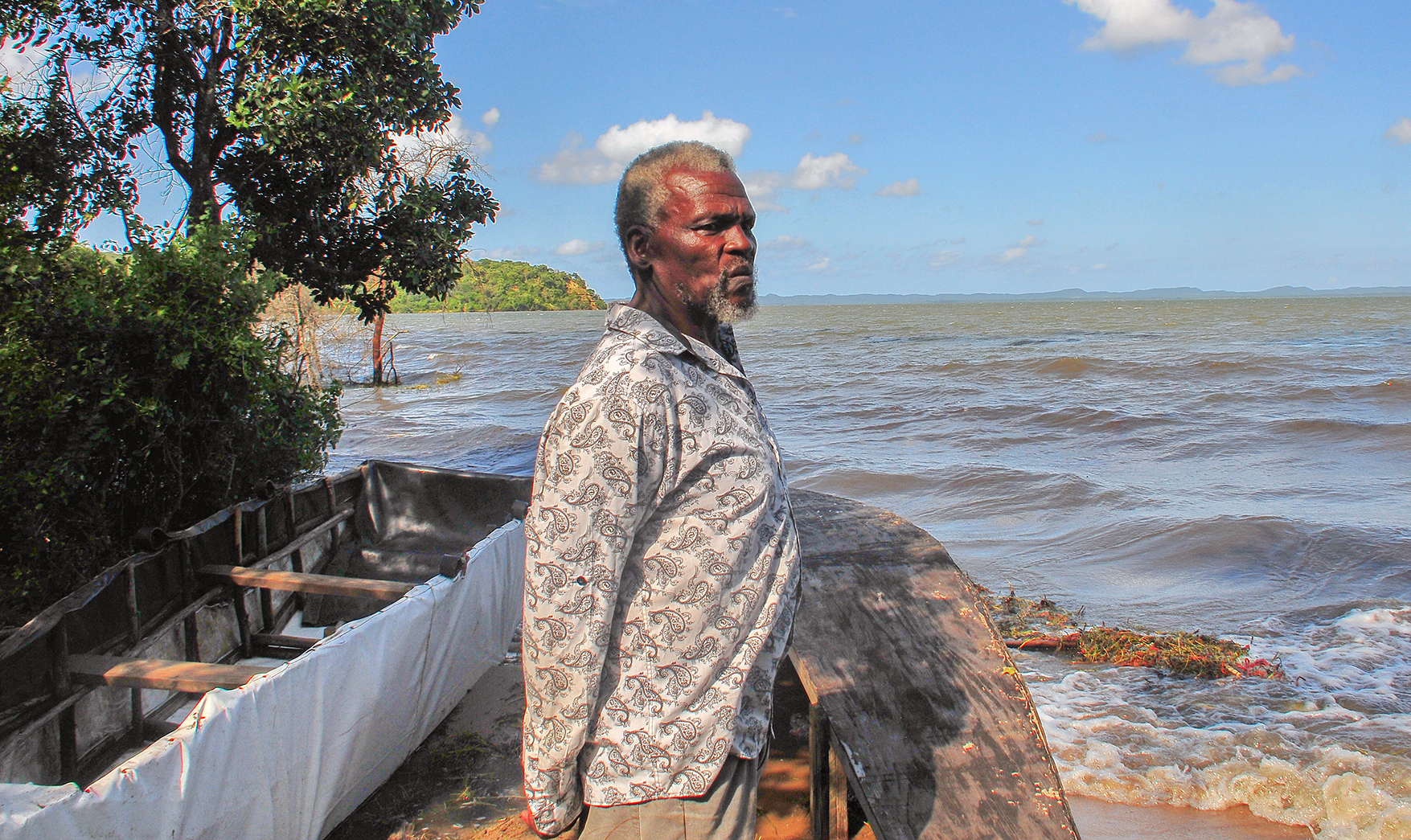
Muntuze Mdluli hopes that he will one day be able to find the remains of his son Thulani Mdluli, who was allegedly shot and killed by rangers from the iSimangaliso Wetland Park,
KwaZulu-Natal. (Photo: Lucas Ledwaba / Mukurukuru Media)
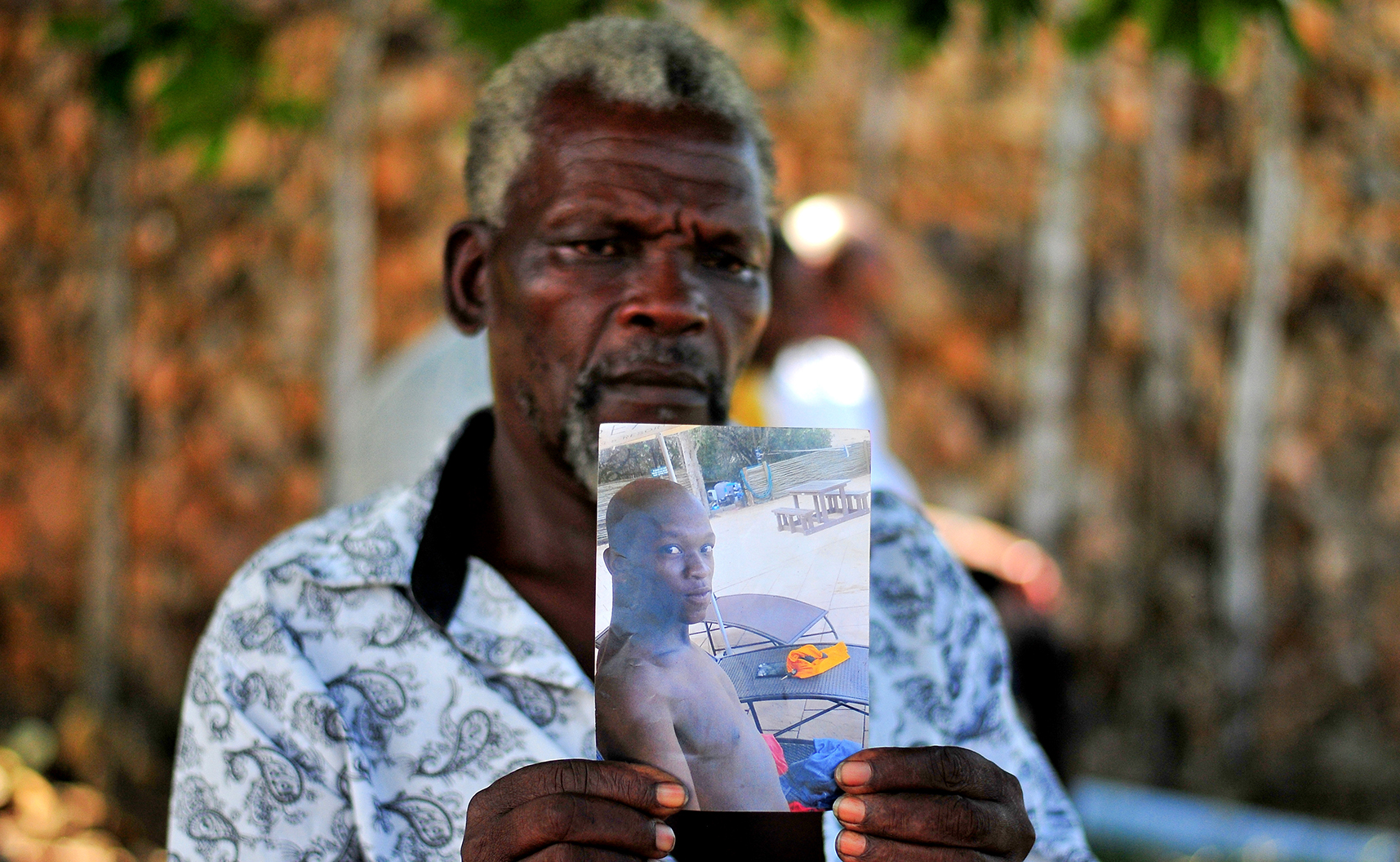
Muntuze Mdluli’s two sons, who were fishermen, were shot and killed, allegedly by rangers from the iSimangaliso Wetland Park, KwaZulu-Natal. The body of his younger son Thulani has never been found. (Photo: Lucas Ledwaba / Mukurukuru Media)
The two deaths are part of an ongoing battle between the authorities enforcing conservation regulations and local communities who have fished in the lake for generations and are trying to survive in a highly regulated environment.
The United Nations, which has declared 2022 as the International Year of Artisanal Fisheries and Aquaculture (Iyafa 2022), says 90% of the 120 million people employed in fisheries work in small-scale fisheries and almost all of those workers, 97%, live in developing countries.
It further notes that many small-scale fishing communities have high levels of poverty, and fish provides vital nutrition for billions of people and is essential to the diet of the poor.
The UN says: “Iyafa 2022 will be an opportunity to showcase the potential and diversity of small-scale artisanal fisheries and aquaculture, and points to the benefits which can be gained from facilitating partnerships and cooperation with fishers, fish farmers and fish workers and in achieving the United Nations (UN) Sustainable Development Goals (SDGs).”
However, the opposite seems to be the case for the communities of artisanal fishers who have lived near to and fished in Lake St Lucia for centuries.
“We are now treated like thieves. We are forced to risk our lives going into the lake at night. They shoot at our fishing boats. They attack us with pepper spray. We are now forced to fish during the night, hoping they won’t be able to see us. It is dangerous because there are lots of hippos and crocodiles in the lake,” said Melca Khumalo who has fished all her life in KwaNibela.
Muntuze Mdluli, the father of the dead fishermen Thulani and Celimpilo, stood in silence on the shore of Lake St Lucia on a late afternoon, staring long and hard across the vast mass of water. A strong wind howled eerily, causing the water to gush against the shore. It’s been five months since his son Thulani disappeared right here after allegedly being shot by game rangers from the iSimangaliso Wetland Park.
“When someone dies and people know where they were killed, they are able to put a cross or something to remember him. But with my son, I do not even know where to start. I have never seen his body or his bones. I was just informed he was shot by the rangers, but I have not seen his body. With my other son [Celimpilo] at least I saw his body and buried him,” said Mdluli.
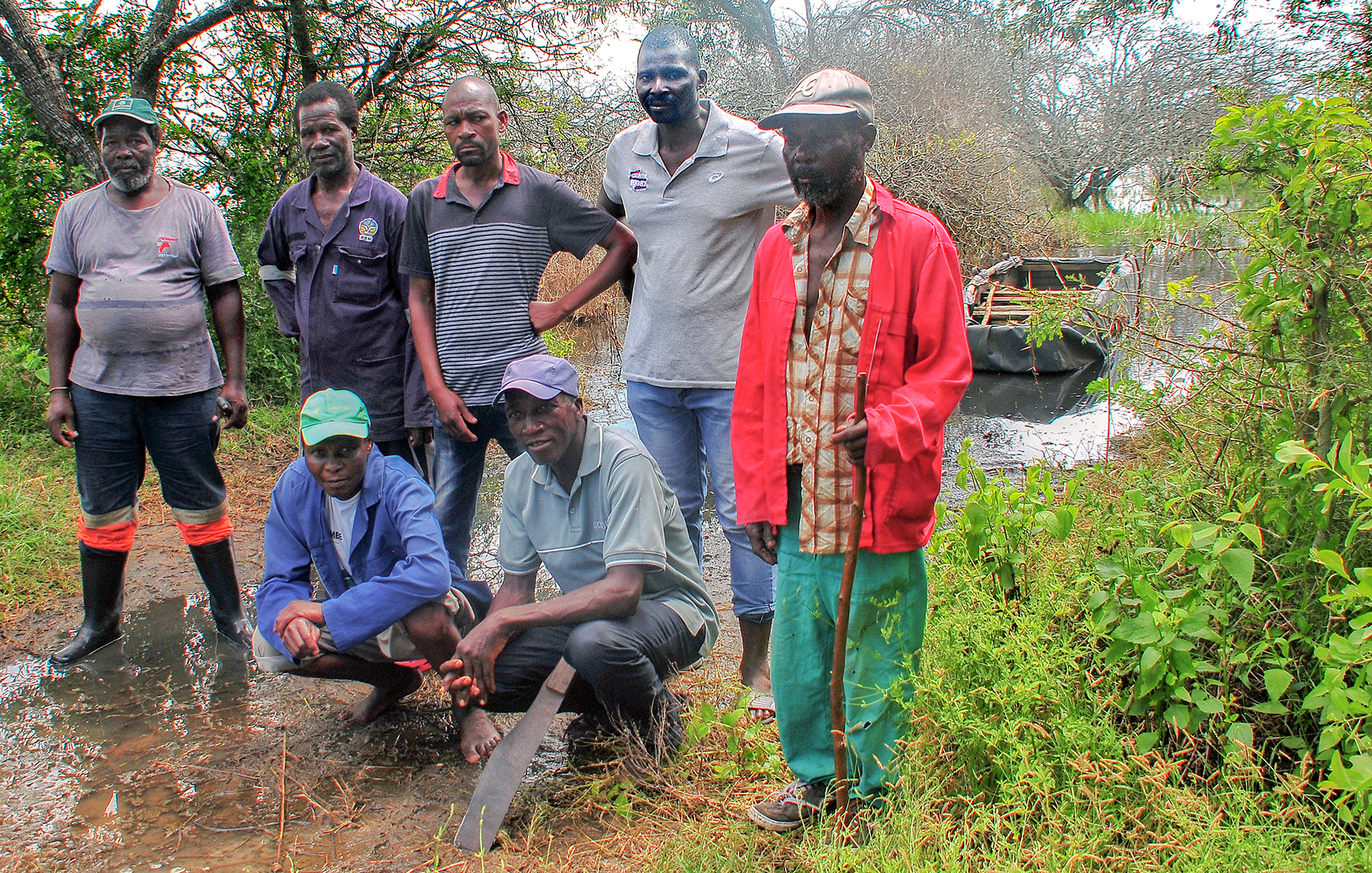
Fishermen from KwaNibela, KwaZulu-Natal, are struggling to make ends meet due to regulations placed by the iSimangaliso Wetland Park and a crackdown by rangers.
(Photo: Lucas Ledwaba /Mukurukuru Media)
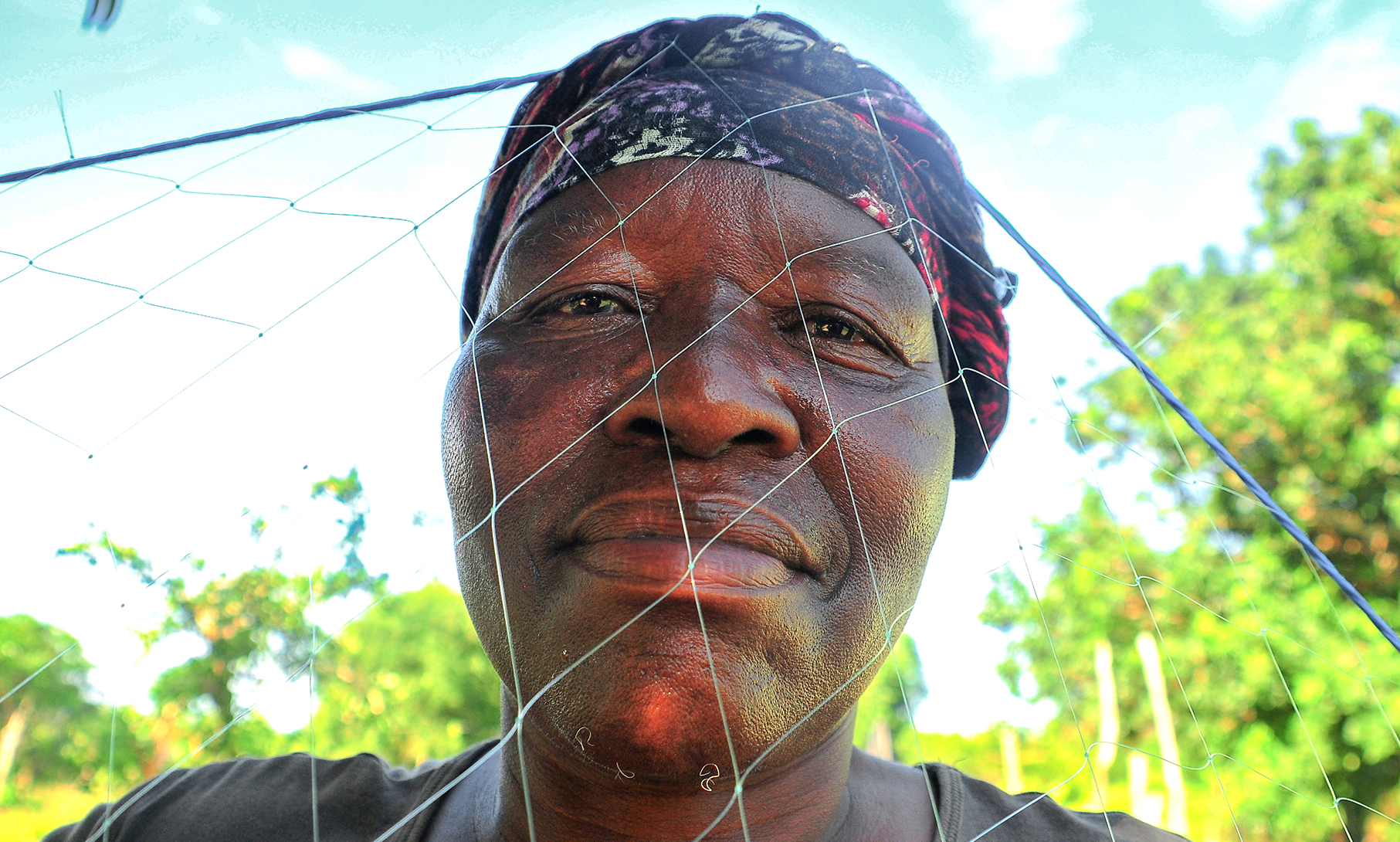
Melca Khumalo from KwaZulu-Natal has been fishing for as long as she can remember. She now fears for her safety as they are now forced to fish under cover of darkness due to attacks by rangers. (Photo: Lucas Ledwaba / Mukurukuru Media)
Earlier, while talking about his son at his homestead, he broke down. He let out a loud shriek that triggered sobs of sorrow from his wife Phumelele and other family members seated on a grass mat a little distance away.
Later, standing on the shore of the lake where his son is said to have been shot, he pointed across the rough waters.
“My son was shot over there where that hill drops into the lake. That area is now completely under water.” He paused to compose himself before staring into the distance. “Maybe they fed him to the crocodiles. I don’t know. What I know is that I want his body.”
Bheki Manzini, the spokesperson for the iSimangaliso Wetland Park, said that Celimpilo and Thulani Mdluli “had trespassed into the protected area and were fatally wounded during the exchange of gunfire with the rangers”.
Manzini said both incidents were reported by iSimangaliso to the SAPS and the matter was being handled by the police.
Bonga Mdluli said the family wants justice.
“He [Thulani] was shot many times. He was shot on his back, he had a broken arm and also had injuries under his feet.”
Mdluli said the police told them that the Secure Digital (SD) card containing images of the scene where Celimpilo’s body was found has been damaged and the pictures cannot be retrieved.
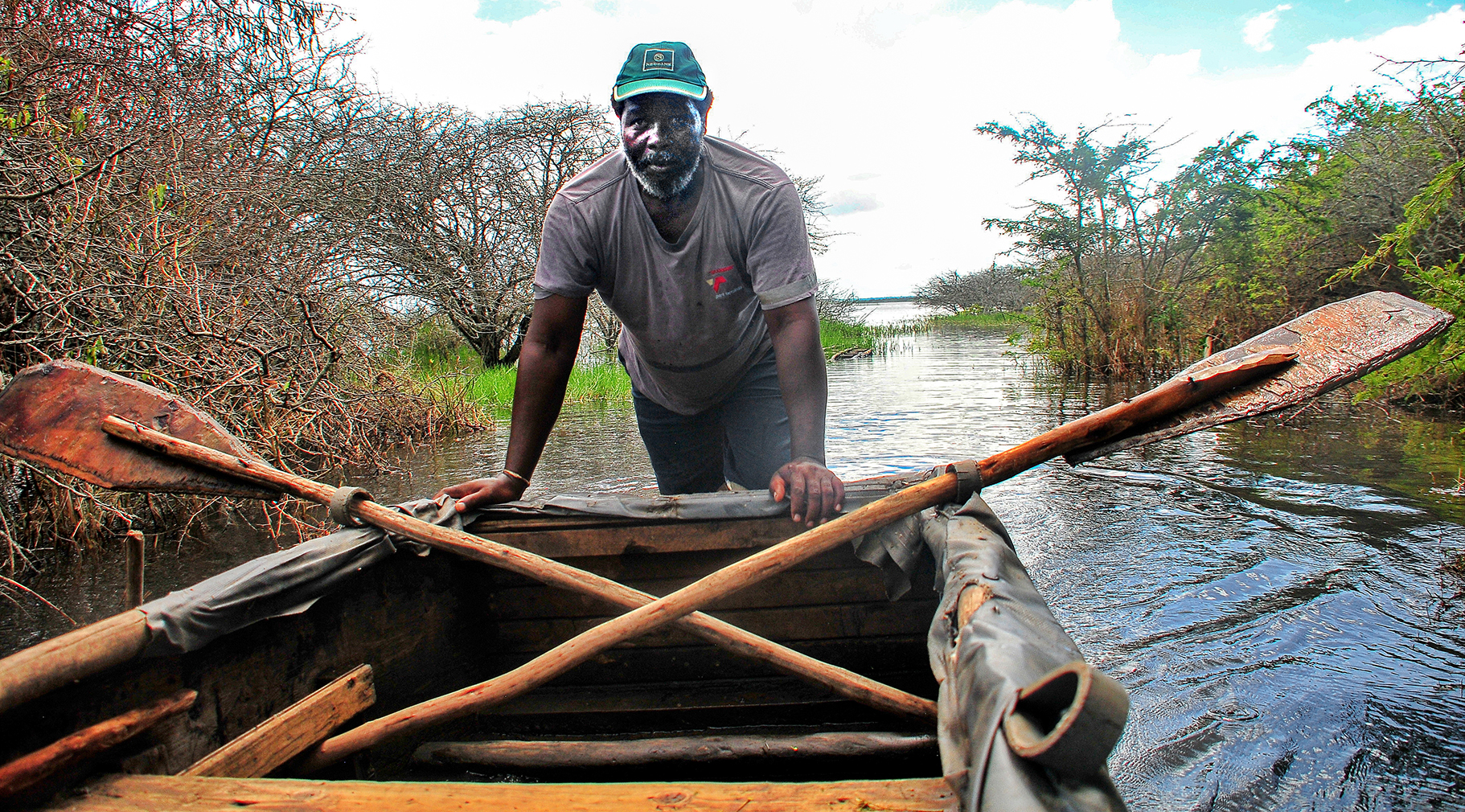
Hamilton Sithole says he fears for his life each time he ventures into St Lucia Lake to fish as rangers attack them with guns and pepper spray, sometimes leaving them stranded in the lake after destroying their boats. (Photo: Lucas Ledwaba / Mukurukuru Media)
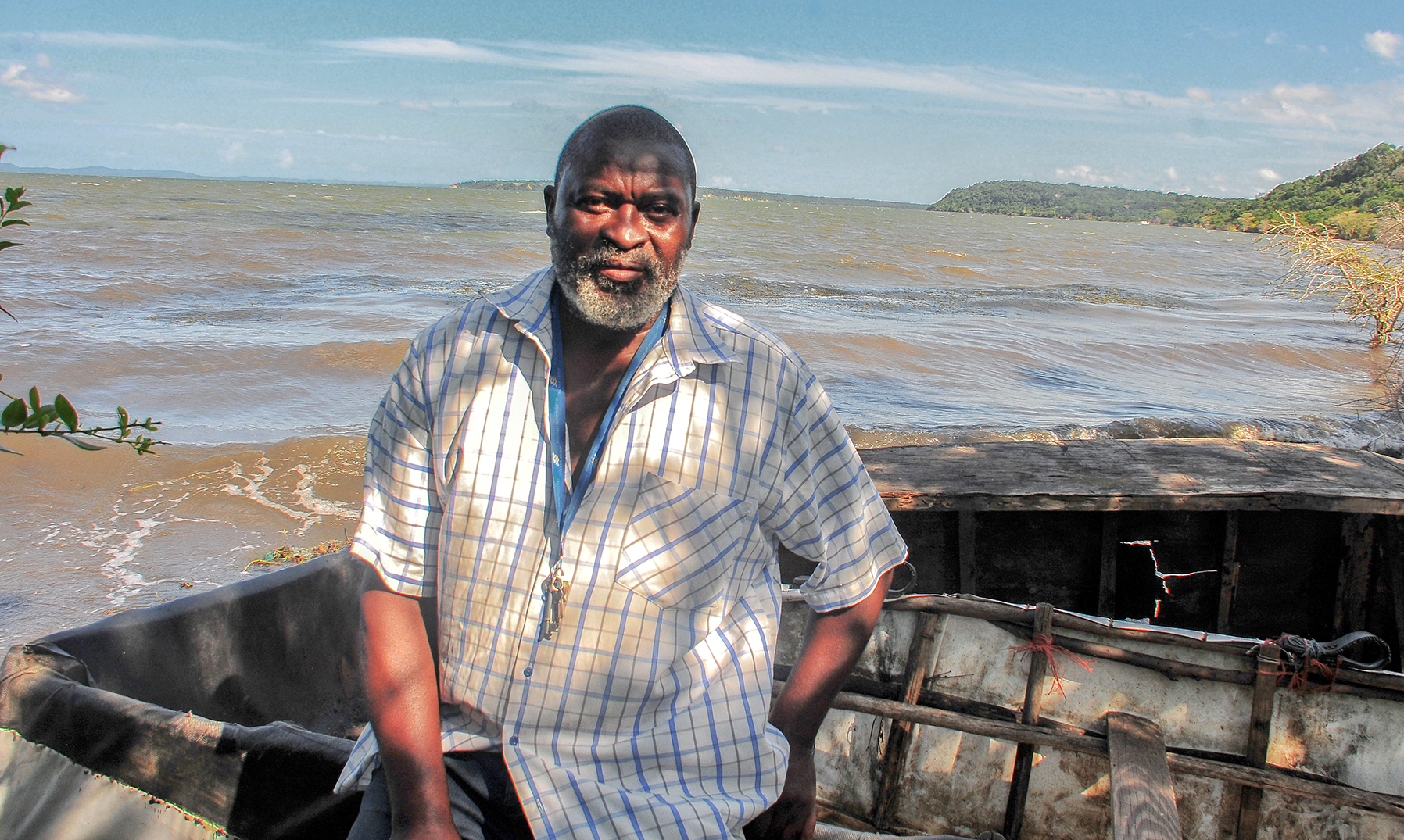
Thomas Nkuna, who leads a co-operative of fishermen along the St Lucia lake, KwaZulu-Natal, says the crackdown on fishing has brought immense suffering on locals who have survived on this activity for many generations. (Photo: Lucas Ledwaba / Mukurukuru Media)
In response to allegations that rangers used pepper spray and live ammunition on fishers, assaulted them and in some cases destroyed boats, Manzini said: “iSimangaliso Wetland Park hires field rangers who have gone through training and have experience in protecting nature and dealing with poachers who trespass in the park carrying dangerous weapons.
“Our field rangers operate within the park at all times as per their mandate and there are no incidents whereby field rangers have gone to communities to harass or intimidate innocent members of the community.
“We just want to fish, that is all. Why are they killing us? They should not kill us because we have been fishing here in the lake all our lives. Even those who came before us fished in this lake long before this reserve was proclaimed,” said Thomas Nkuna, who represents a co-operative of fishers from KwaNibela.
Nkuna said the crackdown on fishers had led to increased levels of poverty in the area as most families survive by catching fish to eat and sell at local markets.
“I have been fishing all my life. Most people here know no other life except fish. If they say we are endangering nature, then why do we still have fish in the lake, because even our great-grandparents lived off this lake?”
Bonga Mdluli, whose father and grandfather were fishermen, also grew up fishing but stopped doing that full-time after he found a job at a hotel in Hluhluwe. After the Covid-19 lockdown, he lost his job and is now desperate. His whole family, including his father, relied on the income generated from fishing.
“KwaNibela is a remote area. There are no jobs here. People survive on fishing and harvesting incema [grass used for weaving items sold to tourists]. If they say we should stop fishing, how will we survive?”
In response to accusations of rangers using force against fishers, Manzini said the iSimangaliso Wetland Park is an officially proclaimed protected area and a Unesco World Heritage site, “which is therefore required to [be] run and manage[d]… in accordance with the law”.

KwaNibela fishermen are forced to hide their operations from the authorities who have cracked down on fishermen in the village near St Lucia lake, KwaZulu-Natal. (Photo: Lucas Ledwaba / Mukurukuru Media)
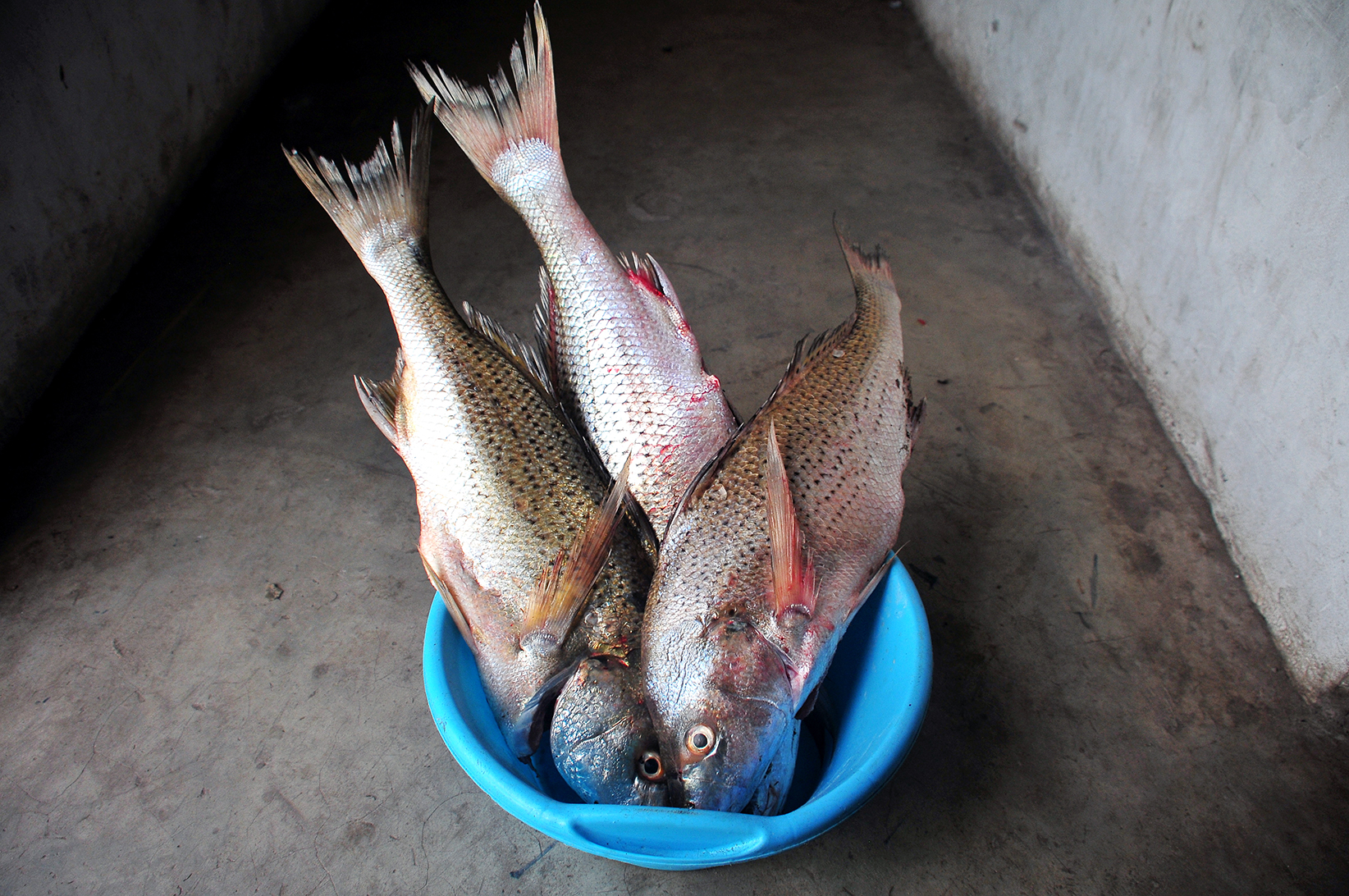
Fish from the St Lucia lake feeds families in KwaNibela and surrounds. (Photo: Lucas Ledwaba / Mukurukuru Media)
The park was established in November 2000 under World Heritage Convention Act regulations consolidating 16 different parcels of land under one proclamation.
The artisanal fishers previously used traditional fishing methods such as fish traps and spears before gill nets were introduced by conservation authorities. But now the gill nets are at the centre of the ongoing crackdown.
“In South Africa, the use of fishing methods such as gill nets is strictly prohibited by law. It is also important to note that iSimangaliso has demarcated areas within the park designated for fishing by fishermen in possession of legal fishing licences/permits,” said Manzini.
The fishers interviewed raised concern that iSimangaliso was failing to communicate with them and used force instead. But Manzini said that iSimangaliso “has hosted several meetings with the general community, fishing community and traditional leadership to try and address the poaching challenges.
“In such meetings, communities are educated about the dangers of trespassing. iSimangaliso has held meetings with the local leadership to discuss, among other things, poaching, unemployment and poverty [which are] prevalent in the area.
“To alleviate poverty, iSimangaliso has channelled business and employment opportunities to the community of Nibela through various government programmes (EPWP tourism safety monitors and Groen Sebenza). These programmes are already being implemented in the area by iSimangaliso.”
But the deaths of Thulani and Celimpilo Mdluli have struck fear in the local population.
“The arrival of iSimangaliso has caused us many problems. I fear them. I fear the rangers. I fear them even in my sleep,” said Muntuze Mdluli. DM/MC
[hearken id=”daily-maverick/9472″]



















 Become an Insider
Become an Insider
What a one sided article -many of these “subsistence” fishermen are basically commercial operators stripping the area of everything with their gill nets and fish traps. Go and watch the area as they pull up in their fancy 4×4 vehicles due to the massive profits they have made overfishing the area. Unfortunately some of the real subsistence fishing people are caught in the crossfire.